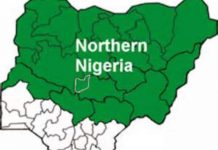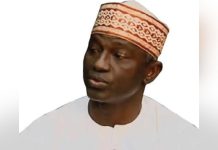Nigeria’s gas policy states that the government expects that producers will see the obligations as part of their contributions to national development and doing business in Nigeria. The government knows that the domestic market is unappealing, however it expects producers to do their bit regardless. A possible change of government in 2019 won’t ease the pressure either.
Although Nigeria’s DSO has been cut significantly in the last two years, the target has still not been met. In 2017 the DSO was double the volume actually delivered. However, the potential costs of DSO non-compliance has focused minds, particularly among the IOCs. All of them are prioritising supply to a market that is constrained in terms of infrastructure and credible buyers. Producers are desperately seeking customers, but are finding that their competitors are on exactly the same mission.
A low income is better than no income
But suppliers don’t just want to find any offtakers, they want to find reliable offtakers who demand a steady supply of gas and will pay the regulated price of US$2.50/mn Btu.
Non-payment for gas remains a chronic problem and the power sector is the major culprit. The sector deficit from 2015 to 2016 was nearly US$2bn. In 2017, the government established a central bank facility of US$2bn over two years to ensure that generators are paid. This in turn should help them pay their gas bills. But the facility will need continual replenishment as long as the industry lacks electricity meters and below-cost tariffs are maintained.
To mitigate risk, some producers have experimented with pre-payment arrangements, but the on/off switching of supply is counter-productive for reservoirs and turbines alike.
So before producers can dream of accessing deregulated pricing, they would simply settle for getting paid by a reliable customer. Regardless of price, receiving income no matter how low, is preferable to receiving none at all.
Can you avoid the power sector?
The quick answer is not easily. Large resource holders will struggle to avoid the power sector if they want to market their gas. Not only because the power sector absorbs nearly two-thirds of domestic gas demand in Nigeria (around 650mn cf/d, but because the government largely controls who you sell your gas to, and the power sector is its priority.
Gas supply agreements under the DSO are brokered by the Gas Aggregator Company of Nigeria (GACN), a government middle-man which aggregates gas supply and provides a weighted average price to producers. It is a transitional body that is supposed to make way for direct contracting between buyers and sellers. But after 10 years, it’s still going, even though the current administration views it as “largely unsuccessful”.
The trouble is, there is just not enough transmission capacity to carry the available power in Nigeria. Although capacity is officially 7 GW, the grid still struggles with loads much over 4 GW. So power stations (of which 8 GW is available) cannot reach their full capacity. This has knock-on implications for gas suppliers even if they have a supply agreement with GACN.
Azura-Edo: extra capacity does not equal extra commodity
Azura-Edo near Benin City is Nigeria’s first true permanent independent power project (IPP) that did not involve the IOCs. It started fully generating in May 2018 and is now operating all three turbines with a total capacity of 459 MW.
But Azura-Edo would not have happened without multiple guarantees. It is essentially backed by the government with multi-lateral donor support too, so that its private investors are protected from risks which would typically prevent a project like this in Nigeria.
Seplat supplies the gas, receiving an index-linked price of US$3/mn Btu, compared to the regulated US$2.50/mn Btu.
Azura-Edo’s output has recently averaged 300 MW or 8pc of Nigeria’s power, so it is already making a major contribution. But its output is not additive; there’s yet to be any increase in total power on the grid.







